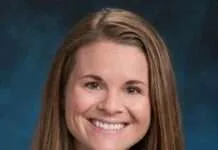K-State family resource specialist shares tips on building emergency saving fund
MANHATTAN, Kan. – Saving money to get through emergencies has always been a sound financial strategy, but the COVID-19 pandemic reminded many just how crucial a financial cushion can be.
Elizabeth Kiss, a family resource management specialist with K-State Research and Extension, said the pinch of the pandemic forced many Americans to dip into their reserve funds in order to get through it.
Others, she added, may have actually saved money during the pandemic because they were not able to travel, eat out or attend their favorite events.
In either case – and in light of communities opening up again — “it’s time to think about our budget,” Kiss said.
“If we step back and think about our budget and how our income and expenses flow, we need to first cover our weekly and monthly expenses,” she said. “The next step is to think about whether we have money for next month’s expenses.”
Once the weekly and monthly bills are accounted for, Kiss urges consumers to think about building an emergency savings fund, or money set aside to cover urgent or unanticipated expenses – such as a surprise medical bill, major car repair or even sudden unemployment.
Building an emergency fund could be as easy as setting aside $5 a week. “Slow and steady wins the race,” she said.
Kiss points to a recent publication, titled ‘Establishing or replenishing emergency savings,’ that indicates if consumers had saved just $5 a week since the end of the Great Recession (June 2009), they would have accumulated $2,600 by March 2020 – the beginning of the pandemic-related shutdown.
While more is always better when it comes to an emergency fund, any amount you can save is helpful. America Saves, a campaign managed by the nonprofit Consumer Federation of America, outlines 38 reasons you need at least a $500 emergency fund.
“I’m not saying all of this can be accomplished overnight because I recognize that everyone’s situation is different and it can be a challenge,” Kiss said.
One strategy, though, is to “pay yourself first” when the paycheck arrives.
“Take money off the top, before you pay your bills,” Kiss said. “You can automate that payment, or simply have it transferred from your bank account. Or as you do your routine financial tasks, you transfer the money to yourself.”
Kiss then recommends having a plan for the rest of the money, to include paying bills and entertainment or other expenses. “Other goals you may have could be saving to buy a home or car or putting money aside long-term for retirement,” Kiss said.
Watch out for pandemic-related scams
Kiss also is urging consumers to be on the lookout for scams related to the pandemic.
“We always need to be on our guard for the hook,” she said. “The pandemic is the hook for these scams, so we want to watch for unsolicited offers or emails or other communication from people we don’t recognize, but who act like they know us.”
“If it doesn’t sound interesting or doesn’t apply to you, just hang up. We all want to be polite, but you also have to look out for yourself.”
Some ways to protect yourself from scams include:
• The person in communication with you says you qualify for a program, but you have to pay money to access more money. “That’s likely a scam,” Kiss said. “And especially if they claim to be from the government. You don’t ever have to pay money to get money from the federal government.”
• If the product or service sounds useful to you, but you’re not sure if it’s a scam, use a form of payment that gives you some protection – such as a credit card. Many companies provide protection against liability for unauthorized charges, and payments are traceable.
• Use a separate Internet browser to research the product or service online. You can often find out if it’s a legitimate offer or not. Also, the Better Business Bureau or Federal Trade Commission can be resources for helping consumers.
Many more tips are available online in the publication, Steering clear of pandemic-related scams.
Kiss also noted that many seem to be receiving more spam calls these days. To reduce these calls, consumers can register their number in the National Do Not Call registry (DoNotCall.gov).
Kiss reminded consumers to protect their personal information. “Never give your social security number, driver’s license or credit card numbers” to someone who contacts you by phone, text or email with an unsolicited offer.
And, she notes: “Remember the old adage: If it sounds too good to be true, it probably is.”
FOR PRINT PUBLICATIONS: Links used in this story
Establishing or replenishing emergency savings (publication), https://www.consumer-action.org/english/articles/saving_COVID
38 reasons you need a $500 emergency fund, https://americasaves.org/blog/1727-38-reasons-you-need-at-least-a-500-emergency-fund/
National Do Not Call registry, https://www.donotcall.gov
Steering clear of pandemic-related scams, https://www.consumer-action.org/english/articles/Scams_COVID
K State Research and Extension is a short name for the Kansas State University Agricultural Experiment Station and Cooperative Extension Service, a program designed to generate and distribute useful knowledge for the well being of Kansans.
Supported by county, state, federal and private funds, the program has county extension offices, experiment fields, area extension offices and regional research centers statewide. Its headquarters is on the K State campus in Manhattan. For more information, visit www.ksre.ksu.edu. K-State Research and Extension is an equal opportunity provider and employer.
Story by:
Pat Melgares
785-532-1160
[email protected]
For more information:
Elizabeth Kiss
785-532-1946
[email protected]





